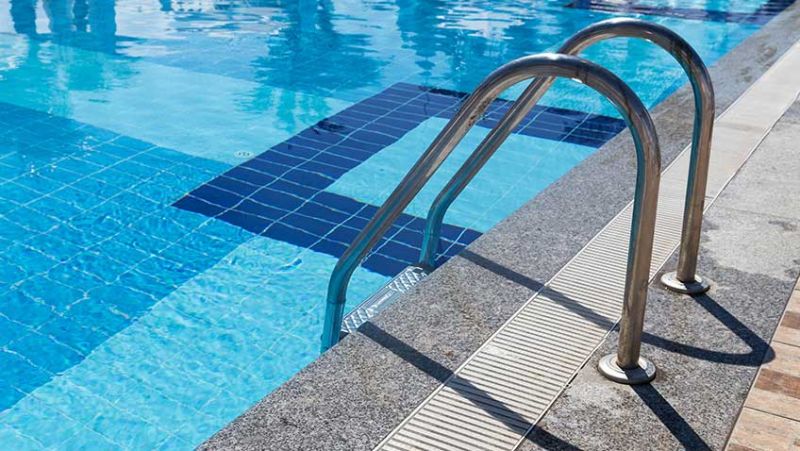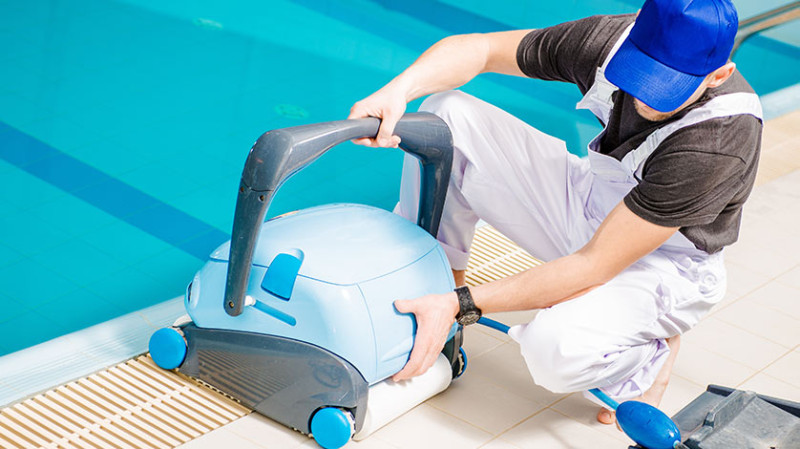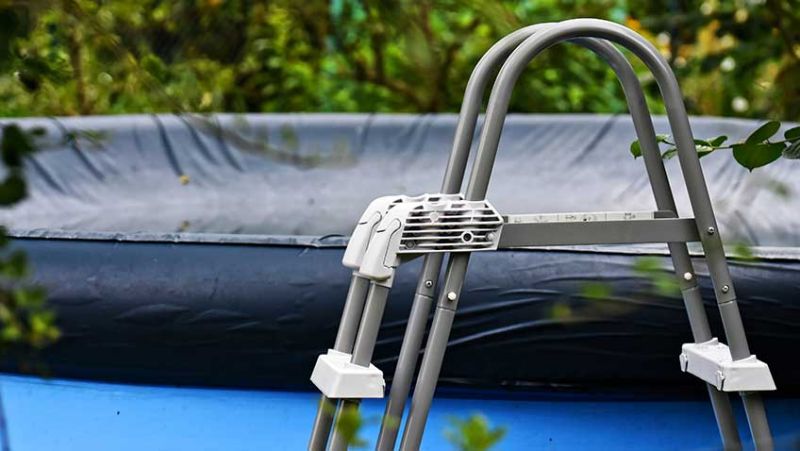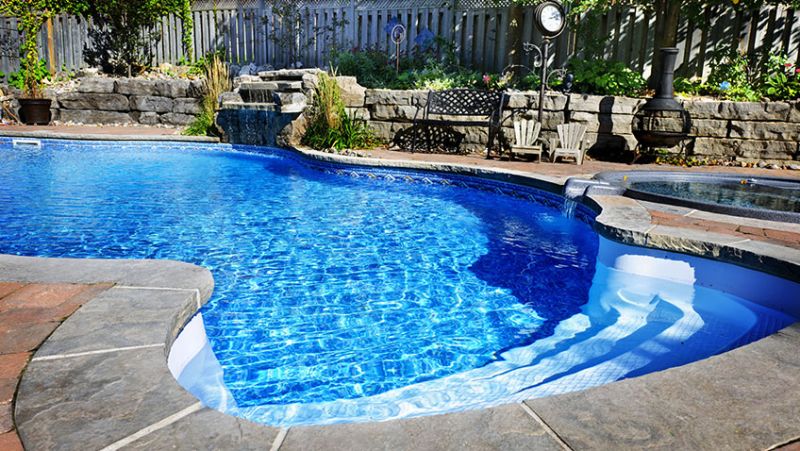
If your swimming pool looks like it's seen better days, don't despair! With a little elbow grease and the right cleaners, you can make it look brand new again.
Remove Debris
When it comes to keeping your swimming pool clean, one of the most important things you can do is remove debris. Debris can come from a variety of sources, including leaves, twigs, insects, and even small animals. While some debris will eventually sink to the bottom of the pool, where it can be vacuumed up, other types of debris will float on the surface. This floating debris can quickly clog your pool's skimmer, pump, and filter, which can lead to serious problems.
To remove floating debris from your pool, you'll need a skimmer net. A skimmer net is a specially designed net that's attached to a long pole. Using the skimmer net, you can simply scoop up the debris and remove it from the pool. Be sure to empty the skimmer net into a trash can or other container that's away from the pool.
In addition to using a skimmer net, you should also brush your pool on a regular basis. Brushing helps remove debris that's stuck to the walls and floor of the pool. It's also a good way to loosen up dirt and grime so that it can be vacuumed up more easily.
Finally, don't forget to vacuum your pool on a regular basis. Vacuuming helps remove debris that's sunk to the bottom of the pool, as well as any dirt and grime that's been loosened up by brushing. Vacuuming is also a good way to remove any algae that might be growing in your pool.
Clear the Filter System & Check the Equipment of the Pool
It is very important to keep the filter system of your pool clean and well maintained. A dirty filter can lead to a number of problems, including cloudy water, algae growth, and even equipment damage. Filter systems should be cleaned on a regular basis, and it is a good idea to check them monthly to ensure that they are working properly.
To clean the filter system, first turn off the pump and remove the filter cartridges. Rinse the cartridges with a hose to remove any dirt or debris. If the cartridges are very dirty, you may need to soak them in a cleaning solution overnight. Be sure to rinse them thoroughly before putting them back in the filter system.
Once the cartridges are clean, you can put them back in the filter system and turn on the pump. Check all of the equipment to make sure that it is working properly. If you notice any problems, be sure to contact a pool professional for help.
Keep your pool clean and well-maintained by following these simple tips. With a little bit of care, you can enjoy many years of swimming fun.
Scrub the Pool Clean
It's important to keep your pool clean, and one way to do that is to scrub the sides and bottom of the pool with a brush. This will help remove dirt, grime, and other debris that can build up over time. Be sure to scrub in all the nooks and crannies, as well as any areas where the pool liner may be coming loose.
If you have a pool with a lot of leaves and other debris, you may want to invest in an automatic pool cleaner. These devices can help keep your pool clean with minimal effort on your part. Simply place the cleaner in the pool and let it do its job!
Get Your Pool Professionally Inspected
If you own a pool or are thinking about purchasing a home with a pool, it's important to have it professionally inspected. A professional pool inspector can evaluate the condition of the pool and identify any potential safety hazards. They can also provide advice on how to maintain the pool and keep it in good condition.
Having a professional pool inspection is especially important if you have young children or pets. Pool safety is a top priority for parents, and an inspector can help identify any potential hazards. They can also offer tips on how to make the pool area safer for everyone.
If you're thinking about buying a home with a pool, it's essential to have it inspected by a professional. An inspection can help you determine if the pool is in good condition and if there are any potential safety concerns. It's also a good idea to have an inspection before you purchase a home, so you can be sure that the pool is safe and ready to use.
Test Your Water & Enjoy
It's time to fill up your pool and enjoy the summer sun! But before you dive in, it's important to test your water to ensure it's safe for swimming.
Here are a few things to keep in mind:
- The pH level of your water should be between 7.2 and 7.6. This is the level at which chlorine is most effective.
- Your pool should have a free chlorine level of 1-3 ppm (parts per million).
- Your pool should also have an alkalinity level of 80-120 ppm. Alkalinity helps to stabilise pH levels.
If your pool water is not within these ranges, you can use chemicals to adjust the levels. Test kits are available at most hardware or pool supply stores. Once your water is properly balanced, you can enjoy your pool all summer long!



